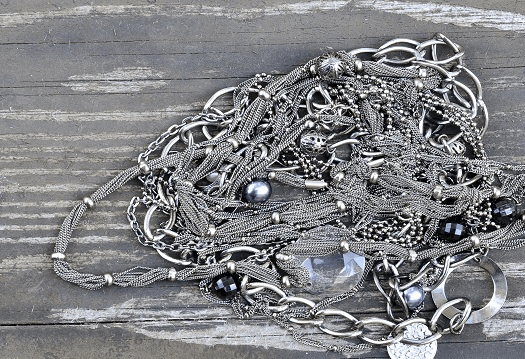Avoid Buying Jewelry Made with These Metals
If you have high-quality jewelry made entirely from precious metals like gold, silver, or platinum, it should stand up fairly well for many years. Realistically, it’s more common for jewelry to include a mix of metals, including some meant to mimic or enhance actual precious metals. Today, the experts from First National Bullion and Coin, San Diego residents’ best choice when they need advice about investing in gold, silver, platinum, and palladium, take a closer look at the metals it’s best to avoid in your jewelry.
Cadmium
It’s best to avoid cadmium, since this metal has been linked to pulmonary edema, which is an accumulation of fluid in the lungs. Cadmium is also associated with a risk of developing health issues affecting the liver, skin, and kidneys along with various cancers. Err on the side of caution and look for jewelry labeled as “cadmium-free.”
Brass
Brass is an alloy of copper and zinc. It’s often used to simulate a gold appearance in cheaper jewelry. It’s a metal to avoid because it tarnishes easily with exposure to moisture. Even sweat from your skin could cause some degree of tarnishing with brass or brass-coated pieces.
Copper
Despite being a widely used alloy in jewelry making, copper does have some issues worth knowing about as you choose your preferred pieces. For one thing, copper may cause allergic reactions. It could also result in skin discoloration.
Nickel
Nickel is often used as an alloy in lower-end jewelry to create what’s termed “white gold.” The potential risk in this case is that nickel is more likely to be a source of skin allergies than the other metals listed here. There’s also the possibility of other skin-related issues with pieces containing higher amounts of nickel.
Aluminum
It’s possible for aluminum jewelry to contribute to excess sweat and moisture, since it prevents airflow to the skin beneath it. Some people also experience allergic reactions to this metal, although this is rare.
Stainless Steel
Because it’s shiny, stainless steel often finds its way into less expensive jewelry, although it may also be used for some higher-end pieces. If you have jewelry with “surgical-grade” stainless steel, such as what’s used in medical equipment, you should be good. However, other versions of this metal present some allergy risks.
Zinc
Zinc is another commonly used alloy in the jewelry-making process, especially in the creation of cheaper pieces. While generally safe in very small amounts, there are some risks with long-term exposure to zinc in pieces with a higher percentage of this metal. Therefore, it’s a metal to avoid with jewelry you’ll likely wear often.
A Word of Caution about Gold-Plated Jewelry
It’s also wise to avoid gold-plated jewelry. The actual gold layer is usually very thin, meaning it will likely wear off over time. What’s found below is usually a blend of several base metals that often include many of the ones already mentioned above. Since the specific mix and percentage of base metals used can vary greatly, there’s a risk of experiencing allergic reactions or other types of skin irritation.
Jewelry and other items made from precious metals can be extremely reliable long-term investments. If they’re building their investment portfolios and looking for the best place to purchase precious metals, including silver bars and gold coins, San Diego collectors should reach out to the trustworthy professionals at First National Bullion. We can answer all your questions and help you find all the information you need on how precious metals can be great investments. Give one of our experienced dealers a call today at (858) 304-7580.
The statements made in this blog are opinions, and past performance is not indicative of future returns. Precious metals, like all investments, carry risk. Precious metals and coins may appreciate, depreciate, or stay the same in cash value depending on a variety of factors. First National Bullion does not guarantee, and its website and employees make no representation, that any metals for sale will appreciate sufficiently to earn the customers a profit. The decision to buy, sell, or borrow precious metals and which precious metals to purchase, borrow, or sell are made at the customer’s sole discretion.


